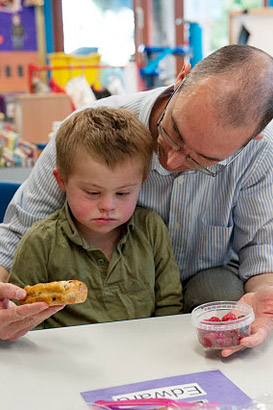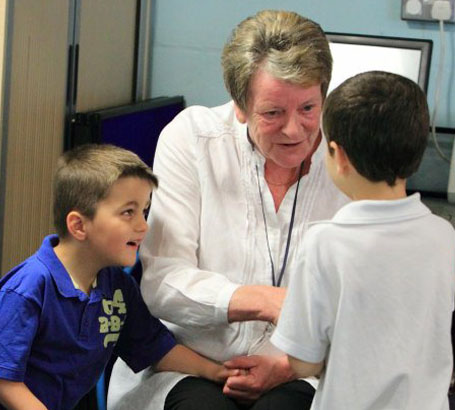PPS have a remit to work with schools. Dependent on their funding level (1 - highest; 3 - lowest), they will, for example:
- Send publicity to schools (1-3).
- Build relationships with schools through individual CYP involvement (3).
- Help schools with parent relationships (2).
- Have involvement with schools pre-tribunal (2).
- Build good relationships with some organisations to provide a wider service for parents (2).
- Run training for schools – educators, governors, SENCOs (1).
- Attend relevant events (e.g. transition meetings, open days) (1).
- Build supportive relationship with schools (1).
- Seek feedback from schools about services (1).
(Rogers et al, 2006)

[LAs have] responsibility
for the funding, resources, management, monitoring and standards of the PPS
service...In establishing PPS LAs are encouraged
to work with voluntary groups and organisations to deliver the services which best meet the needs of parents.
Rogers et al, 2006

PPS are...meant to work with parents of all children with SEN, provid[ing] information and publicity, training, advice and support, networking and collaboration, as well as help[ing] to inform and influence local SEN policy and practice...

Each [local] authority [LA]
in England and Wales has a Parent Partnership Service, usually based in the education department, but sometimes run by a voluntary
organisation.
Council for Disabled Children /
Contact a Family, 2005
Parent Partnership Schemes were promoted in the SEN Code of Practice (1994) to 'encourage...active parent partnership practices for children with statements (significant SENs).'
1994 – Parent Partnership Scheme objectives:
- To provide information and advisory services.
- To initiate the named person scheme.
- To reduce conflict and minimise SEN tribunals.
2001 – The revised SEN Code of Practice stated the need for LEAs and schools to develop effective parent participation.
2001 onwards – Since the Special Educational Needs and Disability Act (SENDA), Local Authorities have a duty to:
- Provide access to PPS for parents in their area.
- Appoint an independent person to help resolve disputes between parents and Local Authorities or schools.

Many parents benefit from advice and information from
their local Parent Partnership Services which exist to provide impartial information and advice to parents about their child's
SEN. The National Parent Partnership Network provides training and guidance for Parent Partnership Services on SEN duties
and on best practice. The most effective Partnerships provide an independent supporter for parents who want one and support
to challenge local SEN policy and practice.
Department for Education, 2011

PPS are supported by the National Parent Partnership Network (NPPN). Visit their website: (http://councilfordisabledchildren.org.uk/what-we-do/networks-campaigning/national-parent-partnership-network) to find out about your local PPS.
Watch the short videos for schools on 'How to get the best from your parent partnership' (http://www.parentpartnership.org.uk/pps/films_for_local_authorities_and_schools.html).
Contact your local PPS (link on the NPPN website) to discuss how they can support your school in working with families.
Devise a questionnaire for school staff to complete on the benefits, challenges and effective ways of working with families. Feed back the outcomes, and discuss how to move forward in practice.

Contact a Family and Council for Disabled Children (2004) Parent Participation: Improving services for disabled children (Professionals' guide), London: Council for Disabled Children/Contact a Family.

